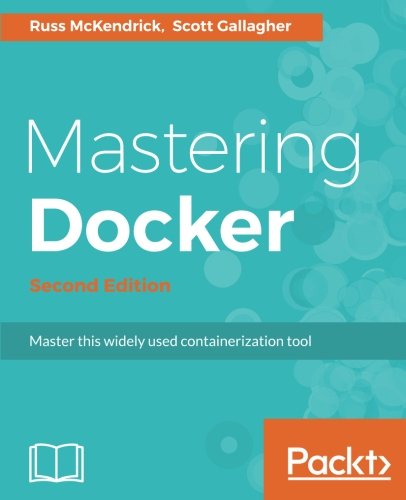; Date: Mon Sep 12 2005
Tags: Java »»»»
As I noted in earlier postings on this blog, I'm working for the Java SE Quality team, and I'm in a phase of looking at how the Quality team can be more transparent. That is, we know the public wants to know more about how Sun makes a quality Java implementation, and what I'm looking into is just what does the public want to know.
So far the word "transparency" has been triggering from open source software projects, and how they operate in transparency. Supposedly that's an advantage over traditional closed source projects. Sun's Java team has been in a mode for over 10 years where we operate behind closed doors, and we see the need to open the doors and let y'all see more of how we go about making Java.
Please be aware that the process of opening our doors is taking awhile. This challenges the traditional corporate mindset of keeping lots of things private because you're in competition with other companies.
In any case, what I want to write about is the word "transparency".
This morning I came across news that CBS News is reshaping its online site to bring more "transparency" to their news process, and one principle avenue to that is a blog named "Public Eye" which is meant to provide dialogue between CBS News and their readership. I've written more elsewhere on the specific announcement.
Their use of the word "transparency" caught my eye. So far I've been thinking of the need for more "transparency" as stemming from the open source software world. But CBS News is about as far from OSS as you can get, yet they're creating transparency in their operations.
Hmmm.... I thought about it long this morning.
Basically the rise of technologies like RSS and blogging offer something different to the world. A blog is just a web site placed in chronological order, and if that's all there were to it then it would be just another website and rather hohum about that. What makes blogging interesting is RSS (and, I suppose I ought to mention Atom) which in general is a way of making targeted streams of announcements. That is, an RSS feed announces a series of content postings. Blogs use the RSS feed mechanism to announce new blog postings, but news websites all over the world are using RSS to announce their news articles, content management systems offer RSS feeds of articles, and so on.
RSS is great at the consumer end. I use the blogbridge aggregator client, and whenever I find a web site I want to track I look for its RSS feed. Assuming it has one, I subscribe blogbridge to it. If it doesn't, I grumble and move on. From then on blogbridge notices anything new the site publishes, and lists the new item for me. This allows me to track far more newspaper and TV web sites far more efficiently than I ever could in the past.
In the 1980's I read Steward Brand's book about the MIT Media Lab, and the one thing that stuck was in my mind was this "broadcatching" idea. That there was starting, in the 1980's, to be a vast amount of news/information/entertainment and that the people would require a service/software to capture all that and filter it all to what the individual needs are. Hence the word broadcatch as opposed to broadcast. Well, RSS news feeds with RSS aggregation software is broadcatching.
But let's get back to transparency and CBS News.
Any corporation offers a number of products and services. The corporation wants to sell those products and services to the public. In the past that's been a one way effort, the marketing department pushing advertising material down peoples throats in whatever avenue they can find. The only dialog might be in private ("focus groups") or highly limited in scope (booths at trade shows) as to the discussion.
However I believe there's value, huge value, in having an open and two-way conversation between companies and people over the products and services offered. The company can find out more about the publics real desires and from that make better products. The people can (!!finally!!) have a voice about the products, though it will still be up to the company to act on that voice. By having the conversation openly rather than in private, it ought to be more honest.
In any case, in the past it was far too expensive to host such a conversation.
But with modern web site techniques, blogging for example, the cost for establishing two way conversation with the customer has dropped down to the trivial category.
Witness what Sun is doing with
blogs.sun.com and the direct conversation happening between Sun engineers and the customers. Ditto what we have here on java.net where I'm posting this now.
What this means is over time as corporations catch on with this, there will be a multitude of corporate "blogs". In essence it can become trivial for a corporate web site to spring up dozens or thousands of RSS feeds and associated interactive two-way portals between the corporation and the people.
This is what CBS News's action points to. That there is or could be a wave forming where corporations are able to host a multitude of targeted conversations about their corporate processes. Transparency, in other words. The capability is there now to do this without breaking the corporate bank, due to the low cost. See, their use of the word "transparency" points to this being a general phenomenon. It's not just something springing out of the OSS community, but it's something happening in society at large. But it's going to challenge the traditions of corporate or government secrecy.
I guess since I'm on the clock here, I have to bring this down to what it means for the Java Quality team and Java community. You're already seeing the fruit of some of this, e.g. with
java.net and the various forums we sponsor. I can say we're going to do more, be more interactive, be more open, and that it's exciting to think about what we might do.
In the quality team the biggest win appears to be collaboration on the development of Java test tools. That's the biggest overlap the Quality team has with the public, that we can see right now.
Source:
weblogs.java.net











